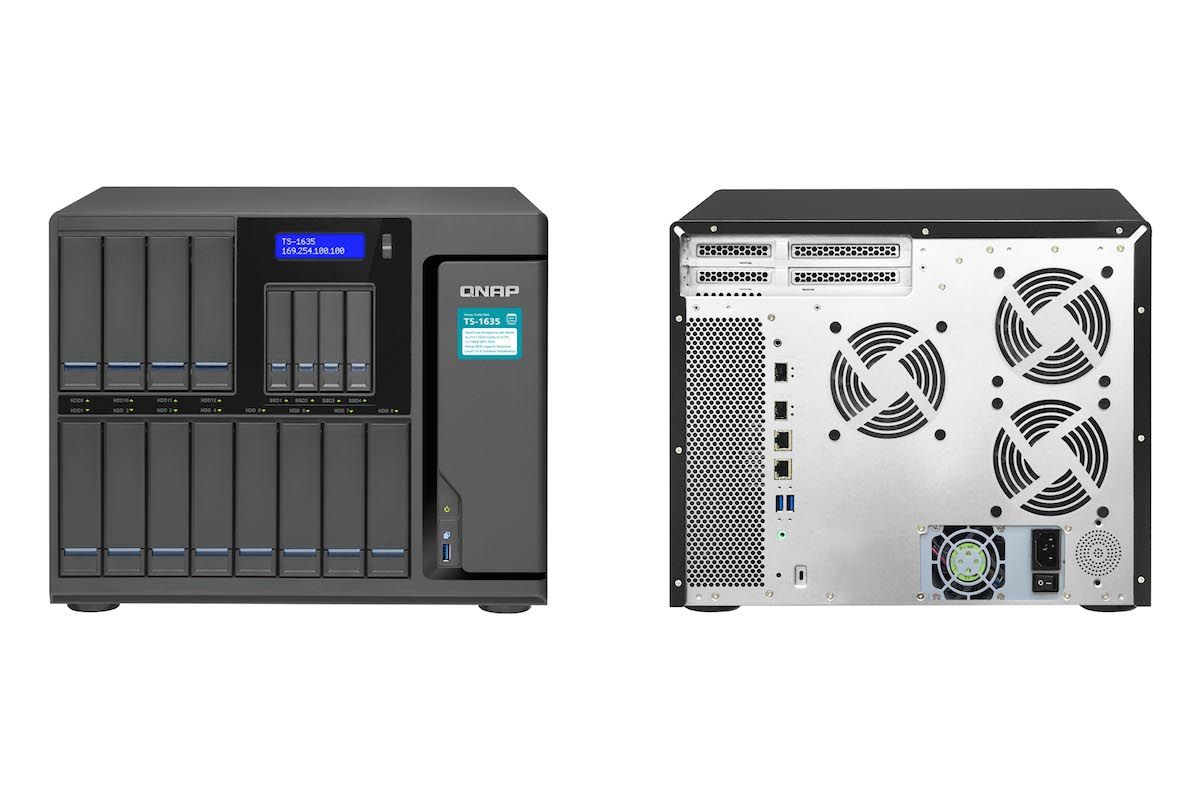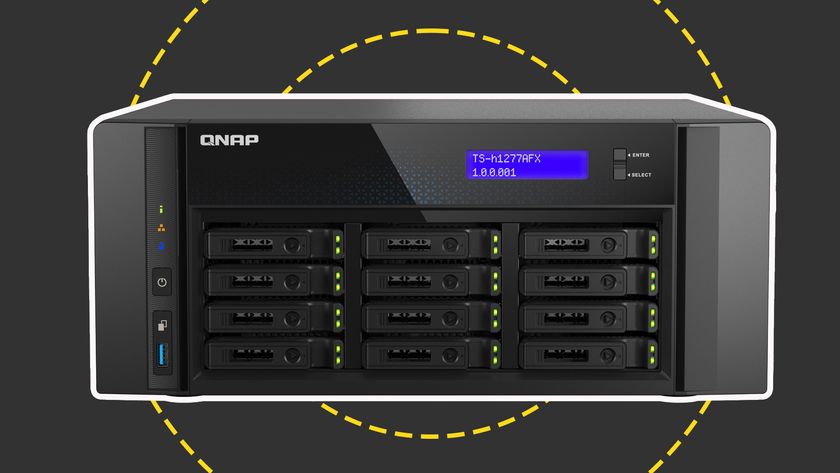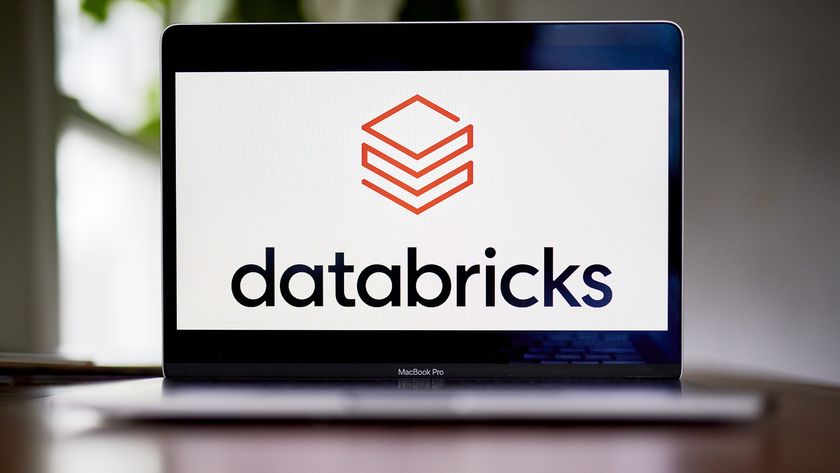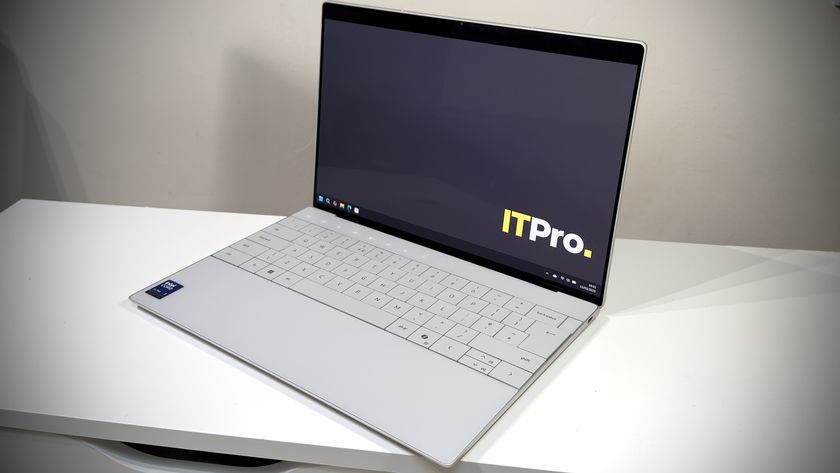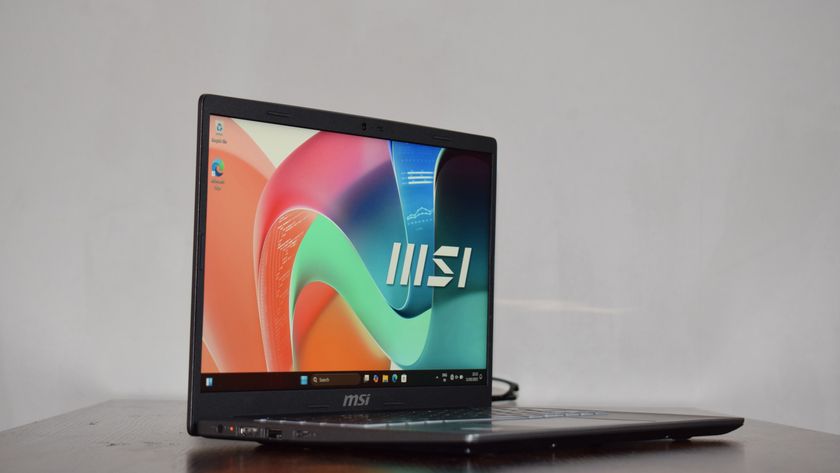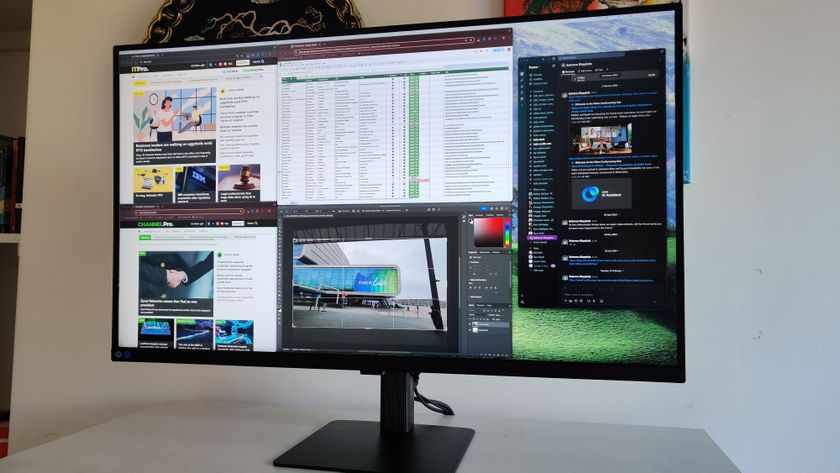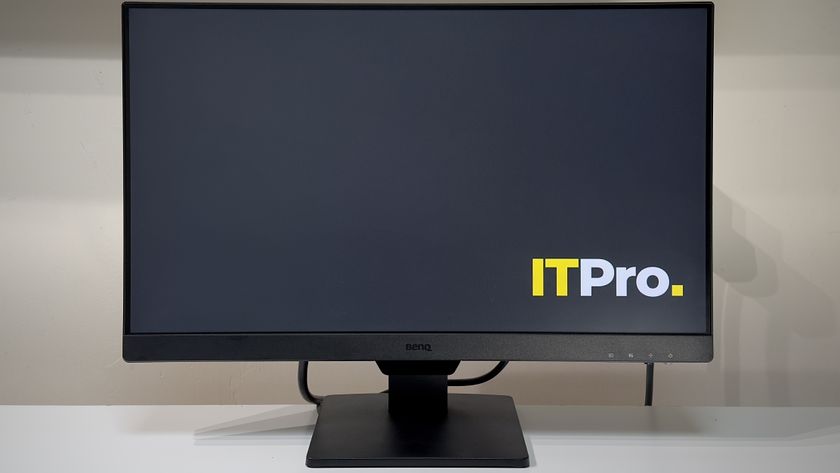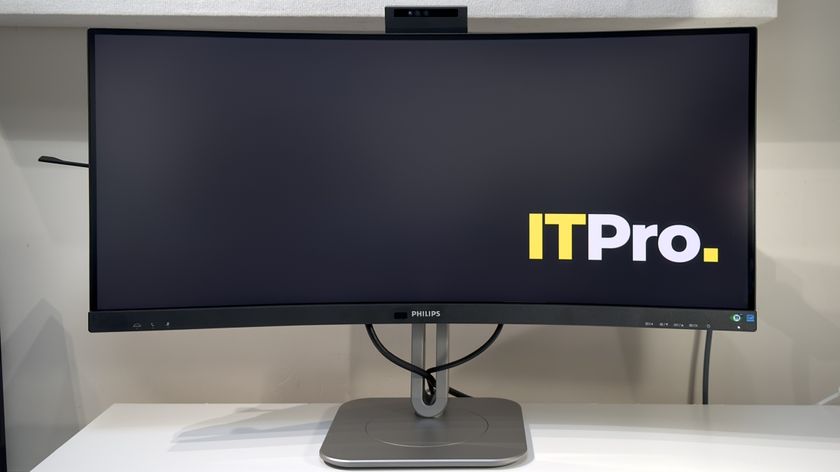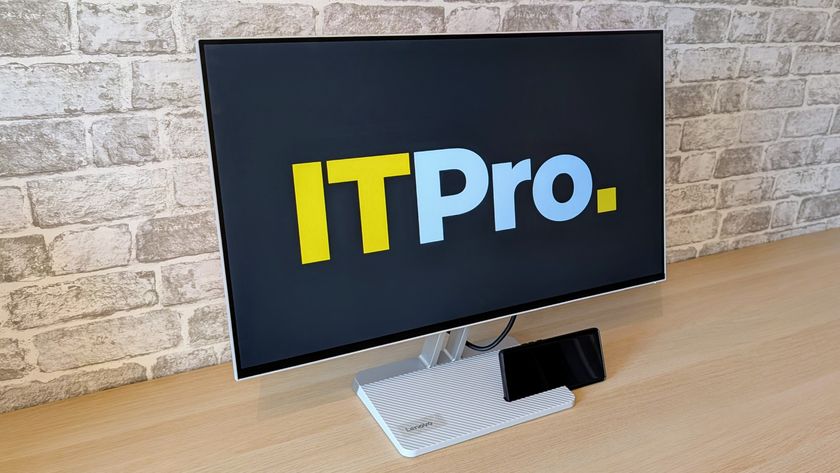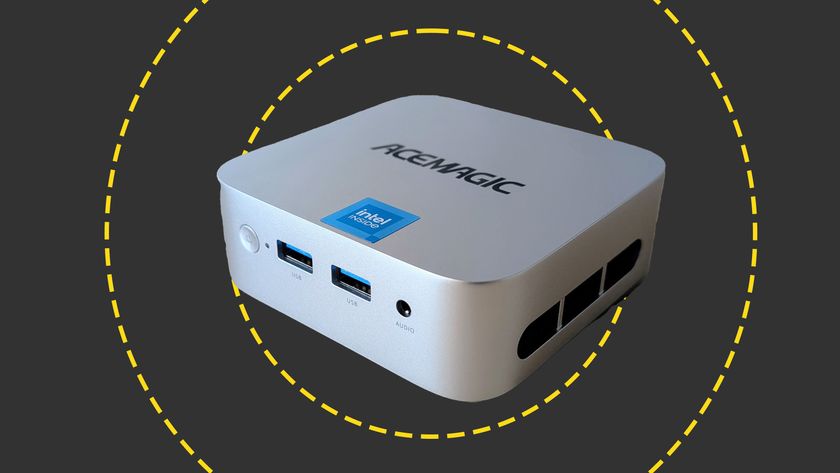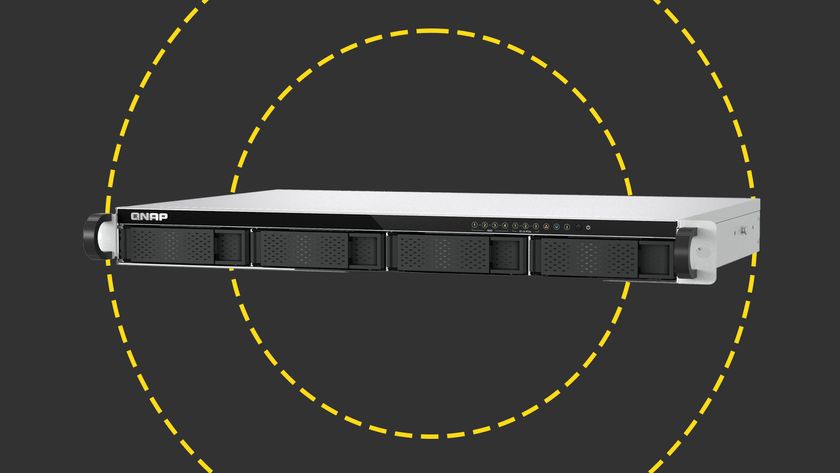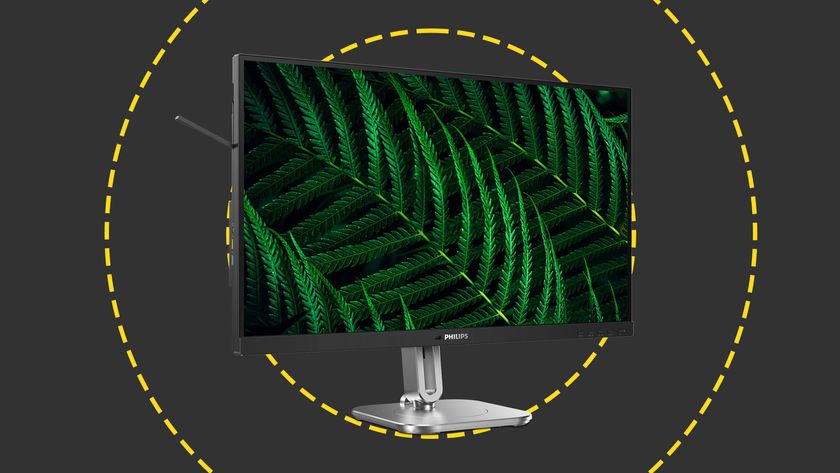Mixed performance
For NAS speed testing, we used a Lenovo x3550 M5 rack server running Windows Server 2012 R2 and equipped with an Emulex dual-port fibre 10GbE adapter. With a share mapped over 10GbE, Iometer reported raw read and write speeds of 9.2Gbits/sec and 5.4Gbits/sec.
We increased the pressure with a second E5-2600 v4 Xeon server and saw cumulative Iometer read rates of 18.3Gbits/sec. Write rates only increased slightly to 6.25Gbits/sec and we noted CPU utilization peaking at 85 percent.
Caching is configured from the Storage Manager app and we used our two SSDs to create a mirrored read/write cache. With this assigned to all our volumes, we saw no improvement for cumulative Iometer read speeds but write rates improved marginally to 6.9Gbits/sec.
The Alpine CPU has an embedded AES-NI encryption engine but performance isn't inspiring either. We created an encrypted volume on a separate 4TB WD Red NAS drive (Qnap doesn't support encrypted folders) and watched a 25GB drag and drop file copy average only 1Gbits/sec with CPU utilization hitting 94 percent.
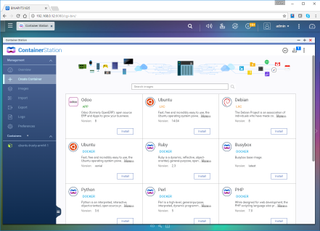
Qnap's Container Station lets you run Linux in virtual machines
Data backup services
Qnap's QTS software offers a good range of data backup features which include the Hybrid Backup Sync app. It provides a smart central console for managing all your local, remote, Rsync, plus iSCSI LUN backups and has wizards for every job type.
These include Qnap's RTRR (real-time remote replication) which is great for running off-site backups to remote Qnap appliances. You can run one-way syncs between local and remote folders and RTRR now supports two-way folder syncing.
Loading the Cloud Backup Sync app adds cloud support to the Hybrid Backup Sync app. This allowed us to schedule and manage backups to Amazon Web Services, Microsoft Azure and Google Cloud Storage.
Workstation backup is handled by the Qsync Central Station app which teams up with Qnap's Windows and Mac clients to provide real-time, two-way folder syncing. New features include a team folder where files can be shared between multiple users, smart delete which retains files on the NAS and the option to centrally manage and lock down client Qsync settings.
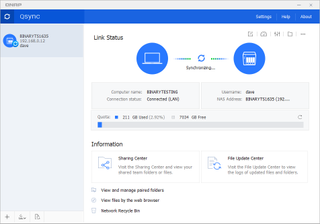
Qsync Central Station provides workstation backup services with real-time file syncing
A shot in the ARM required
Qnap has focused primarily on app building for its x86 appliances so there are quite a few the ARM-based Alpine CPU doesn't support. Virtualization takes a hit as the TS-1635 can't run the Virtualization and Linux Stations or the Network and Virtual Switch app.
NAS and IP SAN snapshots are off the menu as is the VJBOD feature which provides capacity expansion using remote iSCSI targets. For the latter, you can only use iSCSI targets on the TS-1635 to expand capacity on other x86 Qnap appliances that do support VJBOD.
The good news is the TS-1635 can run the Container Station app. Supporting Docker and LXC, this app allows you to virtualize multiple Linux instances on the appliance and provides access to a multitude of preconfigured apps for download.
Conclusion
The TS-1635 won't be beaten for desktop capacity and looks good value even after factoring in the extra costs of 10GbE 850nm transceivers (they're around 90 each). The QTS software offers a lot of storage and data backup features but be aware that there is a shortage of apps that support its ARM-based CPU and write performance under load isn't great.
Verdict
Not our first choice for performance but the TS-1635 is a big, bold desktop NAS with a lot of storage space and integral 10GbE ports for a good price
Chassis: Desktop
CPU: 1.7GHz Amazon Alpine AL-514
Memory: 8GB DDR3 SO-DIMM (max 16GB)
Storage: 12 x LFF, 4 x SFF hot-swap SATA drive bays
Array support: RAID0, 1, 10, 5, 6, hot-spare, JBOD
Network: 2 x Gigabit, 2 x 10GbE SFP+
Other ports: 3 x USB3
Expansion: PCI-e 2 x2 slot
Management: Web browser
Warranty: 2-year RTB
Dave is an IT consultant and freelance journalist specialising in hands-on reviews of computer networking products covering all market sectors from small businesses to enterprises. Founder of Binary Testing Ltd – the UK’s premier independent network testing laboratory - Dave has over 45 years of experience in the IT industry.
Dave has produced many thousands of in-depth business networking product reviews from his lab which have been reproduced globally. Writing for ITPro and its sister title, PC Pro, he covers all areas of business IT infrastructure, including servers, storage, network security, data protection, cloud, infrastructure and services.
